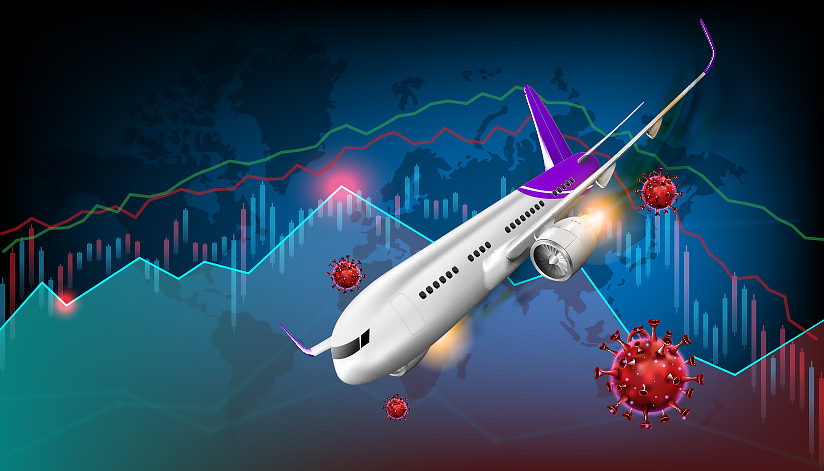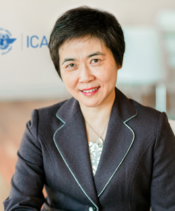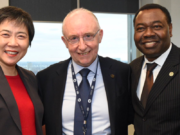
The aviation industry should ensure that disruptions stemming from the COVID-19 pandemic do not weaken the industry’s focus on improving aviation safety, Dr. Fang Liu, secretary general of the International Civil Aviation Organization (ICAO), said Oct. 19 during Flight Safety Foundation’s (FSF) International Air Safety Summit (IASS).
Liu delivered the keynote address to open the 73rd IASS, a virtual event that will continue through Oct. 22. She commended the FSF for its action to “sustain this important aviation event, even as we confront the challenging new normal of this pandemic.”
In introductory remarks, ICAO Council President Salvatore Sciacchitano said that 2020 has brought the world and the aviation community a “grave threat … [that] has shaken our industry” and noted that ICAO’s rapid response produced guidelines for governments and operators for restarting the air transport sector.
ICAO is working on Phase 2 of its Council Aviation Recovery Task Force guidance, incorporating new information on the value of medical tests for COVID-19, he said.

In her keynote, Liu noted that the pandemic has led to “catastrophic disruptions” in the movement of people and goods around the world.
With many nations reporting a new wave of infections now, following a downturn that lasted several months, the aviation community should have “no illusions about how quickly the global recovery will take place,” she said.
ICAO acted quickly as COVID-19 began spreading worldwide earlier this year to help governments find ways to keep cargo supply chains functioning to ensure that food, medicine and medical personnel reached people in need, to ensure that humanitarian relief was delivered and to aid in the repatriation of travelers stranded far from their homelands, she said.
She noted that ICAO, along with a number of national aviation authorities and aviation organizations, including Flight Safety Foundation, have relied upon the ICAO Collaborative Arrangement for the Prevention and Management of Public Health Events in Civil Aviation (CAPSCA) in developing a coordinated response to public health events that affect the aviation community.
Throughout the pandemic, ICAO also has maintained its focus on established elements of aviation safety, she said.
“As we continue to face the challenges of COVID-19 and its devastating financial impact, we must not lose sight of our traditional commitment to aviation safety,” she added. “In these unprecedented times, we must not lose sight of the important structure we have established to improve aviation safety over the longer term.”
ICAO’s Global Aviation Safety Plan (GASP), with its targeted safety objectives and accompanying initiatives is a critical part of that structure, she said. Among GASP’s objectives are the widespread adoption of safety management systems and state safety programs, which “are needed more than ever today,” she said.
GASP provisions and other ICAO guidance can aid the aviation community in addressing new types of risks stemming from the pandemic ─ for example, flight crews seeking to maintain proficiency despite lapses in recurrent training, the effects on aircraft performance of flight in nearly empty cabins and the challenges of returning aircraft that have been in storage to the flight line, Liu said. In some cases, crews are flying longer than their duty times allow, and passengers stressed by the pandemic have become more disruptive, she added.
However, even as the industry copes with these new challenges, it also must confront basic operational safety risks and continue to improve upon its impressive safety record, Liu said.
“Runway incursions and midair collisions remain very high on our list of priorities and must be managed, pandemic or not,” she said, calling on governments to ensure adequate funding for civil aviation safety initiatives.
Foundation President Hassan Shahidi and Capt. Conor Nolan, chairman of the Foundation’s Board of Governors, said in their welcoming remarks that the week’s sessions would focus not only on COVID-19 but also on traditional safety issues.
“It has been challenging, but with all challenges come opportunities,” added Nolan, who also is director of safety and security for Aer Lingus.


